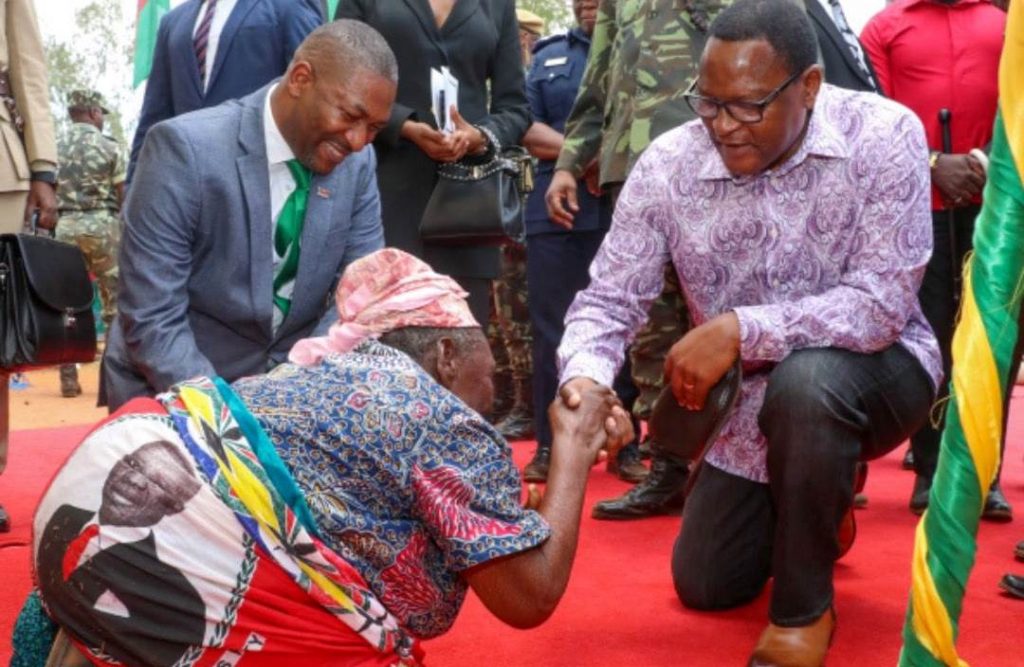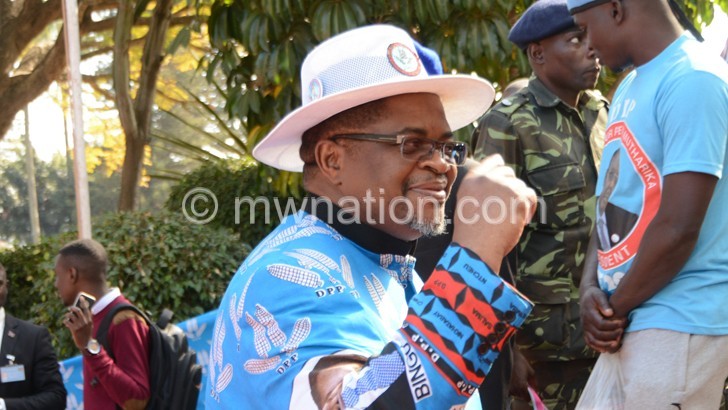President Lazarus Chakwera has conceded that the 2022/23 Affordable Inputs Programme (AIP) has been an uphill task, pinpointing fertiliser suppliers’ sabotage, public officers’ incompetence and commodities competition on the global market among five key threats.
He said this in Dedza yesterday during the launch of the programme that supplies subsidised fertiliser and seeds to underprivileged smallholder farmers across the country.
A woman greets Chakwera at the launch as Kawale looks on
Chakwera said the other challenges were “fraud perpetrated by foreigners” and “blatant lies”, a reference to a United Kingdom company Barkaat Foods which defrauded government of K750 million through a dubious fertiliser supply deal.
Government has come under criticism for delaying to implement AIP as analysts have expressed fear the inputs may not reach the farmers in time.
Chakwera said in reference to the delay: “We have fought battles against incompetence, the incompetence of those officials who failed to get this programme ready within the timeframe they were given.
“But the failure has not prevailed and now 2.5 million farming families are rejoicing because the fertiliser we promised is here,” he said.
Chakwera also alleged that some fertiliser suppliers tried to sabotage AIP by tagging exorbitant prices.
“We have fought battles against sabotage, the sabotage of middlemen who have been trying to discredit this year’s AIP by hiking fertiliser prices ever since we announced that we would stop buying fertiliser from middlemen and start buying it directly from the manufacturers,” he stated.
The President said launching the programme meant “a day of victory for the country” while expressing optimism that the initiative will help fend off food shortages next year.
“As I stand before you today, I can reassure you that my administration has left no stone unturned to bring affordable inputs to you and ensure that the gains registered from AIP in the past two years are consolidated and sustained,” he said.
Chakwera further advised the 2.5 million targeted farmers to follow advice of agricultural extension workers so they can embrace the best farming methods to maximise productivity.
Speaking earlier, Minister of Agriculture Sam Kawale said fertiliser has been dispatched to some parts of the Southern and Central regions.
On his part, Ministerial Task Force on AIP chairperson Richard Chimwendo Banda said they have put in place measures to address supply shortages, especially in rural areas.
The government budgeted K109 billion for AIP in the 2022/23 National Budget which was not enough to cater for all the earmarked farmers and it has taken some donors to support the country with 92 000 metric tonnes of fertiliser.
The post AIP faces threats—Chakwera appeared first on The Nation Online.
 Moni Malawi
Moni Malawi 

